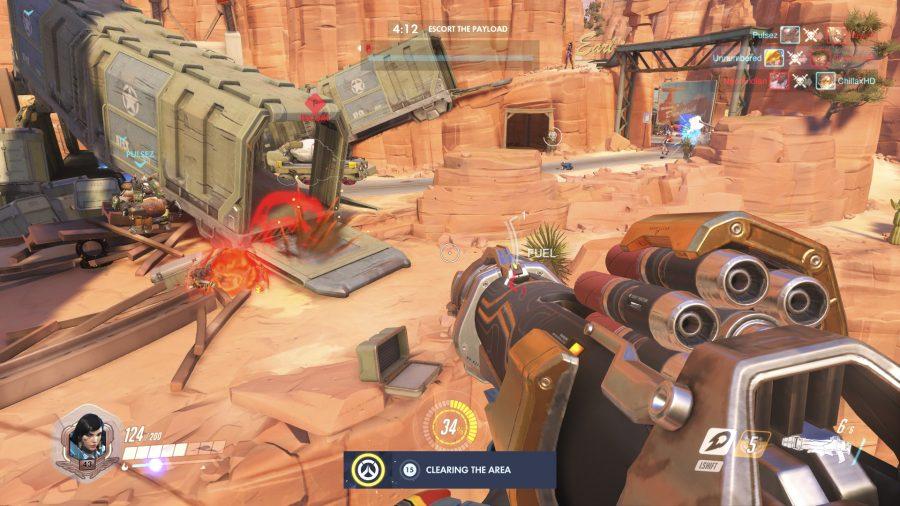Overwatch Quenches Summer’s Game Drought
Photo Courtesy of Christian Bolles
Industry giant Blizzard’s newest game, a juggernaut of an online shooter, pits 22 heroes against each other in a futuristic world fragmented by war.
September 23, 2016
Over the past few months, the gaming industry has been in the throes of what is widely referred to as the “summer game drought,” a period defined by the release of few to no big-budget games between May and August. This year, though, many gamers didn’t seem to care about the dearth of content, as Overwatch dropped on May 24 and had all of them engrossed. Polished to a sheen, this game released to rave reviews, was embraced equally by the competitive E-sports and casual crowds and, in the wake of its success, continued to add free content for all players.
Developed by legendary franchise-giant Blizzard, Overwatch is a team-based first-person hero shooter. In a market that is oversaturated with yearly Call of Duty and Battlefield entries, Blizzard’s first foray into the genre is anything but a cheap clone or rip-off. The game modes are simple, with each match falling into one of three varieties: a point to capture, a payload to be moved or a highly contested midpoint to be conquered. The game lacks some staple game modes of other online shooters, such as Capture the Flag and Team Deathmatch, but their absence is barely felt.
Overwatch’s real strengths shine through its playable characters, known as heroes. Sorted into four distinct groups defining their in-game roles — offense, defense, tank and support — the 22 heroes are fleshed out and different. Offense hero Soldier: 76, for example, is a run-and-gun commando who can stay on the front line with high damage and can also heal anyone in a small range. Another offensive hero, Tracer, who is a focal point of the game’s extensive marketing, darts around erratically, working as a distraction and single-target eliminator to take out support characters who might lurk in the corners of the play area. These are only two of the six heroes in the offense category, and just as much diversity can be found in the other classes. When a team’s hero composition is balanced, with every player effectively filling their role, it feels like a well-oiled machine.
But such orchestration doesn’t happen all the time. Due to the fickle nature of online play, players will get teammates who don’t care about the team. These users are inclined to play the character they want at all costs, sometimes turning the game into a frustrating grind. Considering selfish players abound not only in Quick Play, Overwatch’s more casual option, but also in Competitive Play, which rewards good play by matching users with similar skill levels, it is frustrating to rely on people who refuse to work together. While positive randomly-matched play experiences are possible, Overwatch is at its best when playing with friends online. Talking out strategies on the fly with a skilled group epitomizes the competitive ebb and flow of high-octane combat that team-based first-person shooters aspire to provide.
The diverse cast of characters guarantees that players will find someone who fits their preferred style of play, whether they take to Zenyatta, the robotic monk who boosts damage against enemies with floating orbs, or Pharah, the jetpack-sporting rocketeer who flies above the field while harassing her foes with powerful missiles. Even though there are no pragmatic upgrades for characters — all items earned are purely cosmetic — the game escapes monotony through the developers’ consistent efforts to make it evolve.
A rarity among developers, Blizzard is known for providing outstanding support for its games post-launch, a trait that has bolstered its longevity and popularity. The developer has continued this trend by releasing the first new character, Ana, frequently updating the game with tweaks to existing mechanics and adding a new map only four months after the release.
Beyond that, the team has adopted a unique approach to world-building. Instead of filling the game with lore, Blizzard has been steadily releasing animated shorts online showcasing the game’s heroes. These beautifully animated shorts expand characters’ histories and manage to entertain even those who don’t know much about Overwatch.
It’s another way that the game extends beyond its constraints as a shooter to hold a strong presence in the real world — a presence that will continue to grow.
















